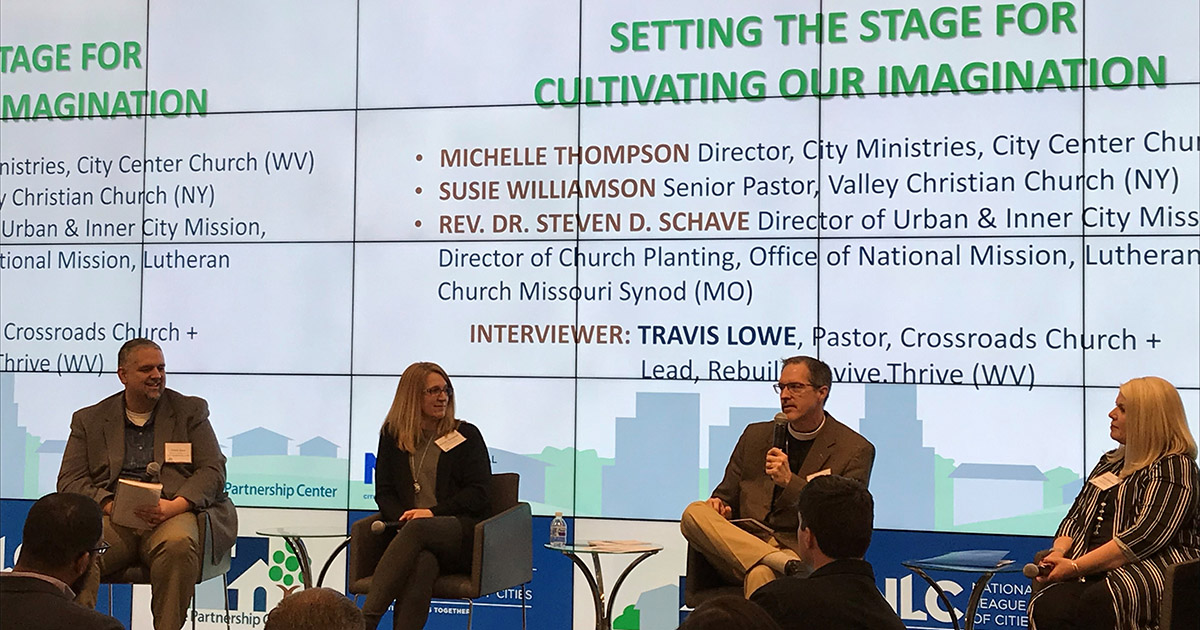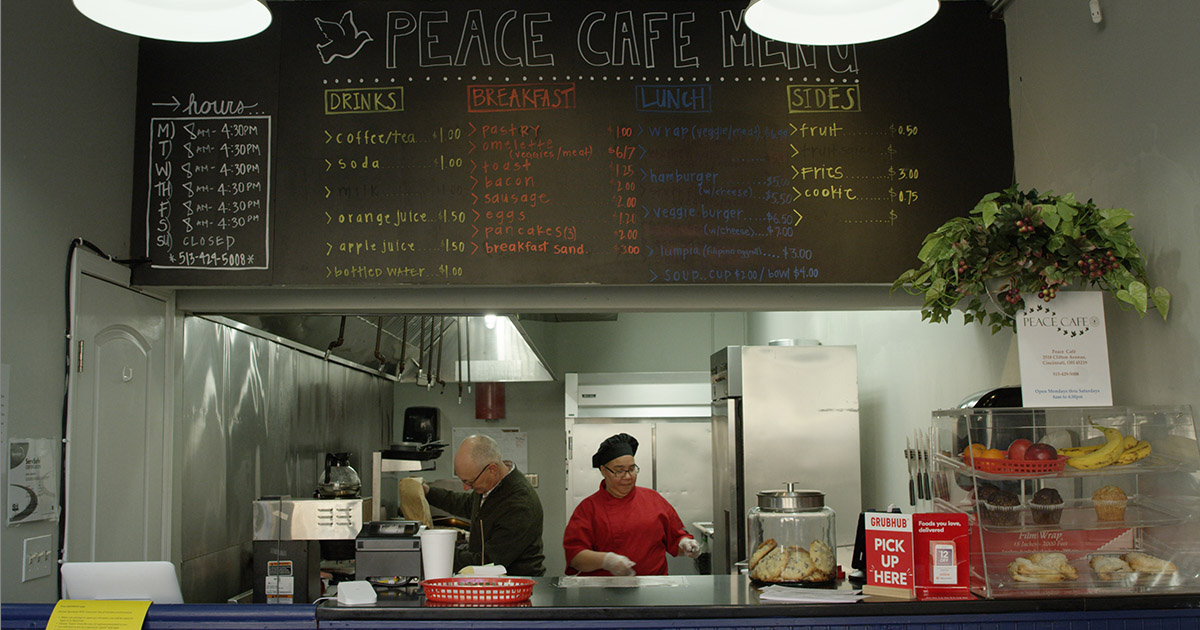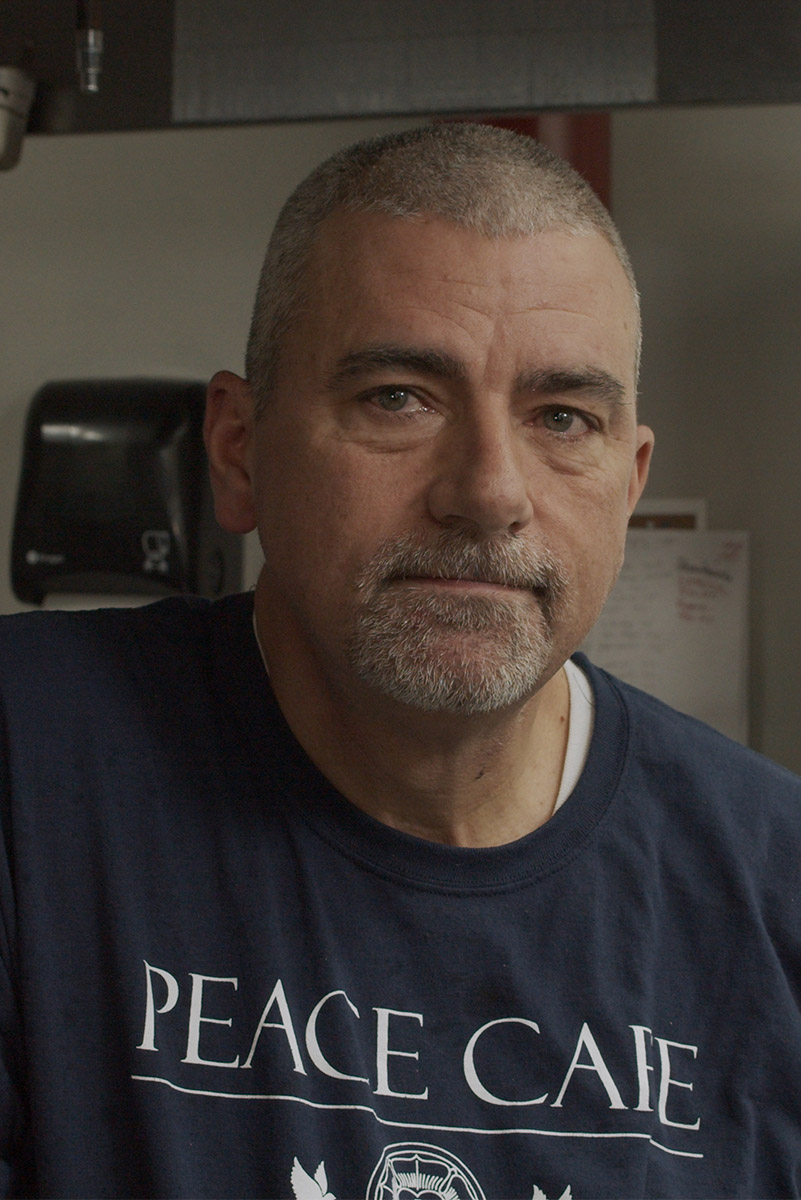
By Cheryl Magness
When the Rev. Dr. Steven D. Schave showed up in Washington, D.C., to attend “Partners in Hope,” a two-day seminar on addiction recovery co-hosted by the U.S. Department of Health and Human Services (HHS) and the National League of Cities, he had no idea he was going to be a featured speaker on the first panel of the event.
Schave, director of LCMS Urban & Inner-City Mission and LCMS Church Planting, says he believes he was asked to do so because the LCMS “is one of the very few national church bodies that has developed a specific program for addressing the opioid epidemic” in this country.
Schave says that program, the Denarius Project, seeks to encourage Lutherans to approach compassion “from a new paradigm in which we are always looking for the assets of the community in which we wish to serve … because we see all people in the image of God.”
The stated goals of the D.C. “Partners in Hope” event, held March 27–28, were to:
- “cultivate the imagination of congregations and communities to … support those in addiction recovery”;
- “explore partnerships … to better support addiction recovery through workforce opportunities and job readiness”;
- “launch a network of diverse stakeholders committed to supporting those in addiction recovery”; and
- “create a practical toolkit that will act as a roadmap for faith and community-based organizations to support workforce development and job readiness efforts.”
Schave says he was motivated to attend because “it wasn’t just brainstorming,” but the event promised a “deliverable” product in the form of future resources for those who want to help recovering addicts: “We all had a voice in what needs to go into this toolkit of tangible, concrete resources for faith-based organizations.”
New approach to mercy
The panel in which Schave participated, “Setting the Stage for Cultivating Our Imagination,” aimed at listening “to the vitality and sense of enterprise that is already emerging in communities.” Schave says he talked on the panel about how the LCMS is seeking to “equip a new approach to mercy, moving from aid to enterprise,” adding that “it goes beyond serving others. It’s caring.”
“You can get people to come and serve,” Schave explains, “but caring is different. To get people to care … requires helping them put themselves in others’ shoes … to see that the other person is the apple of God’s eye.”
Schave sought to put himself in the shoes of a homeless person in the streets of Cincinnati in 2015. You can read more about his experience here.
Before the opening panel at “Partners of Hope,” U.S. Surgeon General Jerome M. Adams, M.D., provided introductory remarks, sharing a personal story of his brother’s struggle with addiction.
On Twitter, Adams elaborated on his decision to tell that story, writing, “I share my family’s struggle to illustrate that addiction can happen to anyone — even the brother of the U.S. Surgeon General. By sharing my story, I hope to give others the courage to share theirs, so that together we can fight stigma.”
Adams said the challenge for faith-based organizations who want to help addicts “is that they must make it more attractive for an addict to recover than to get high, because [recovery seems like] … an impossible dream. … It is just easier to stay high when you are alienated from family and no one will hire you.”
Schave says that’s where efforts like the Denarius Project come in: “If you don’t catch [recovering addicts] right after [their recovery], you’ll lose them.” The Denarius Project seeks to ensure the church is there to help once the recovery has begun.
Still in development but soon to be unveiled, the Denarius Project will provide online courses and other resources designed to assist individuals and congregations to get involved in social enterprise, which, according to Schave, “aims to help lift people out of poverty and addiction by starting small businesses whose sole purpose is to create work opportunities for the underserved and marginalized.”
“It’s a cycle of hopelessness,” Schave says. “A person can’t get a job because of their situation, but because of their situation, they can’t get a job.” The goal is to break the cycle by providing dignity and a sense of purpose.

Breaking the cycle

A case in point is Matt Deremo. A lifelong citizen of Cincinnati, he spent 30 years in the computer industry. Then, says Deremo, “Life took a little bit of a downward turn.”
Now Deremo is trying to rebuild his life at Peace Cafe, a Cincinnati restaurant where he assists with food preparation. The cafe, an illustration of what Schave means when he talks about “social enterprise,” is a project of Prince of Peace Lutheran Church, Cincinnati, under the leadership of Peace’s senior pastor, the Rev. John Suguitan.
“I’m here three to four days a week,” Deremo says. “It’s given me the opportunity to once again hold my head up.”
“This is a unique place,” he continues. “I don’t know any other place in Cincinnati where you can walk in and have a Bible study going on or have someone playing guitar or … just [doing] family stuff.
“It’s like being at home. Being able to come here and be a vital member of the community … means everything to me. In a shelter, things can become impersonal. Here, I’m loved. I feel loved.”
At the conclusion of the “Partners in Hope” conference, Heidi Christensen, public affairs specialist for the HHS Center for Faith and Opportunity Initiatives and coordinator of the event, thanked Schave for his “stunningly moving presentation.”
Reflecting on his trip, Schave says, “It truly was an honor to represent the LCMS at this pivotal event that was held to address a national crisis — that in all actuality has become epidemic.
“It was very reaffirming to hear the U.S. Surgeon General not only give words of encouragement, but to confirm the connection between recovery and workforce development. As he pointed out, the church can have a central role in giving hope again by helping people to thrive and heal.”
Schave continues: “It is encouraging … that the Denarius Project will equip others in this effort. Certainly, we understand that this must be anchored by the altar, pulpit and font in this transformative and life-giving work of mercy.
“On a personal level, I give thanks to God for the opportunity to inspire the national leaders who had gathered to see — in the lost and the broken — our fellow man, our neighbor, one whom God loved so much that He would send His one and only Son.
“We, too, daily fix our eyes upon the cross to stand in awe of this amazing grace.”
Watch a video about Peace Cafe:
Posted May 6, 2019




